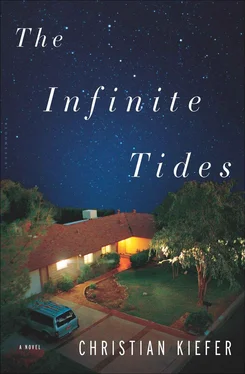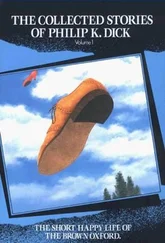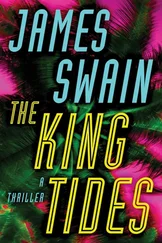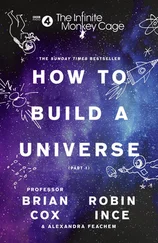The mission had been wrapped into everything to come after but this was only because that was how he had placed it in his memory. The trajectory was simple indeed. But it had not been that way when he was actually there in orbit, when he had had no thoughts of family or of the things of the earth. When even the numbers had fallen silent. And when he simply was — an existence, a being, a man — and there had been nothing else, the situation of gravity falling away as a kind of abstraction. And then he knew he had felt that same way when he had come through the airlock into the space station for the very first time, a feeling of panic that flooded through him and then was gone so quickly that he had forgotten it had even come, forgotten it until this moment. And it had not been fear. Instead it had been the realization that he was finally entering the destiny he had always imagined for himself and yet he already knew that none of it could be described in the language he had spent his life studying. He could have calculated everything there, every physical object he encountered, but what would that tell him? How would that explain the sensation of simply being weightless, with Earth spinning below him as he crested forever into that endless fractal universe? There was no equation. There was simply no equation for such a moment even though all his life he had worked with the numbers in an environment just like this one: in a kind of weightlessness that was his own mind. He might have been able to tell the truth of this to Quinn but he did not know if she would have listened and who else could have understood it? Who else had ever understood him at all? My god. There was no equation for any of it. Not for the universe, not for his loss, not for the decisions he had made or for the feeling of her hand curling into his own.
And when he closed his eyes he could see her in the darkness, her face suspended amongst those tiny diamond stars he held ever within his heart, even with the freeway sounds all around him, could feel her next to him in the car somehow and she was waiting for him to speak. He opened his eyes. Before him the signs of the megastores moved past the windows in the flat white heat of the midsummer sun. “OK,” he said. He cleared his throat. She waited. He could feel her waiting for him. “It seems like a long time ago,” he said to her at last, “but once upon a time I went to space.”
What more is there to tell?
It took them four trips from the car to the beach to unload the various toys, coolers, food, drinks, towels, umbrellas, and chairs. When they were done Keith sat in a beach chair and pulled off his shoes and socks and emptied them of sand and then stuffed the socks into the shoes and set them next to the chair. The two children were already down at the edge of the surf screeching with excitement and Luda called their names repeatedly as Keith and Peter straightened the beach blanket between the chairs and shade umbrellas. Keith’s phone was vibrating again but he did not answer it and did not look to see who was calling him or why and when it stopped he turned it off entirely.
The amount of gear they had amassed seemed enough for an extended family of ten or twelve, an overspilling collection of reds and blues and yellows and greens smearing over plastic and metal and cloth.
“Hungry or later?” Peter said to him.
“Later, I think,” Keith said.
Peter handed him some black-and-white swim trunks and Keith took them. “I don’t know that I’ll go in,” he said.
“In case you want to, now you can.”
“OK.”
Peter wrapped a towel around his waist and exchanged his pants for a similar pair of swimming trunks and then returned the towel to its position across his shoulders. “I am going in,” he said.
Luda had appeared with the children. “Wait for sunscreen,” she said. She hunted through a giant yellow bag and then retrieved a white bottle and squirted the thick viscous fluid into her palm and began the process of applying it to the exposed skin of the children.
The beach was long and crescent shaped and on either side of them the land pressed out into twin and distant points peppered with luxury hotels and the blocky shapes of giant stores. But the beach itself was situated in the center of the crescent and the murmur of the ocean’s quiet rolling all but obliterated any other sound so that the location held the illusion of being isolated. Even the parking lot where they had left the car was separated from the beach itself by a strip of dunes where tufts of grass waved in the breeze. A few small families on either side of them, each with its own separate mountain of multicolored beach gear. In the distance, a single man threw a Frisbee to a black dog. The sand clean and tan and hot in the noonday sun.
“How’d you find this place?” Keith said.
“You look around for a place and this will find you,” Peter said. Then: “Also, it is in Triple-A guidebook.”
Keith smiled but said nothing in response. He was still seated in the beach chair, his feet bare now and pressed to the warmth of the sand. He leaned forward and rolled his pant legs up past his calves.
The children were festooned with a variety of inflatable safety devices, all bright orange, and then Luda moved to Peter and rubbed the sunscreen over his body, his heavy torso and the curve of his belly and then his legs and then returning to his face, rubbing his cheeks and forehead and ears and leaving enough on his nose that it had become a triangular white monument. The children jumped up and down impatiently at his side.
“I will take Marko and Nadia,” Peter said. “You come when you want to.”
“OK,” Keith said.
He watched as Peter said something to the children in Ukrainian and the sound of their glee was an impossibly high-pitched scream and then the three of them turned and jogged down to the surf, Peter dodging as they chased him then letting them catch up and once again spinning away.
“You will burn,” Luda said.
He looked over at her. She stood with the sunlight directly overhead as if illuminated by some great and magnificent spotlight. He reached his hand out toward her and expected her to hand him the sunscreen but she took his hand in her own and held his arm out toward her for a moment and then turned the sunscreen bottle over and dabbed it across his forearm.
“It is good thing you do for Peter,” she said to him. She set the bottle on his chair and continued to hold his hand and rubbed the sunscreen into the exposed part of his arm.
“I’m glad I could help,” he said.
She did not answer him, releasing his hand and retrieving the sunscreen bottle and moving to the other side of his chair. She reached for his hand and once again daubed the white fluid on his arm and rubbed it into his skin.
“He is selfish man,” she said. Her hands strong and smooth and warm. She was looking only at her work and he said nothing to distract her. “It is true,” she continued. “I know this about him even from start. Lean forward.” She dropped his arm and he leaned forward in his chair and a moment later her hands were at the back of his neck, rubbing between his hair and the collar of his shirt, around his neck, across his chest. “But I love him anyway.”
“I know you do.”
“He thinks sometimes he is only one to make sacrifice but I leave everything too. He forgets there are others. This thing we do is for children, I think, so they grow up here and not in Ukraine where it is too much difficult to make life.”
She passed the lotion bottle to him over his shoulder and he reached up and took it from her.
“You should do face and legs too,” she said. “This I cannot do.”
He nodded and squeezed the bottle into his hand and began to spread the fluid across his face.
Читать дальше












